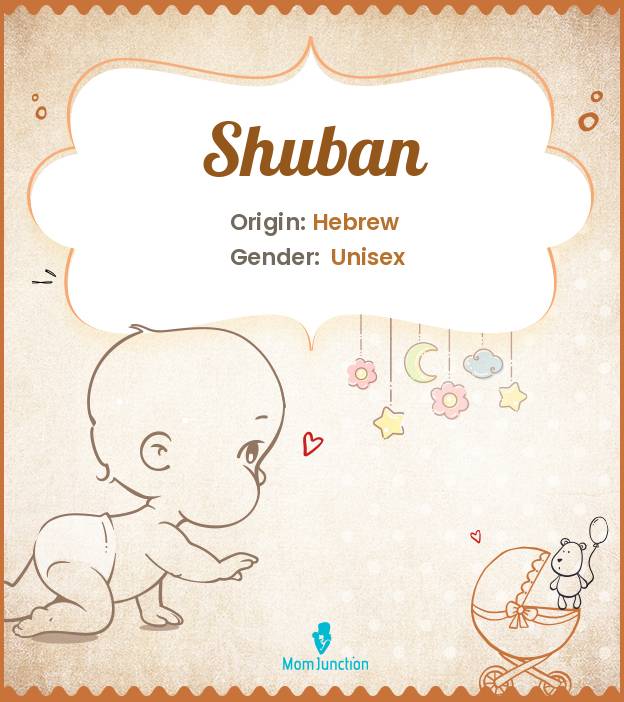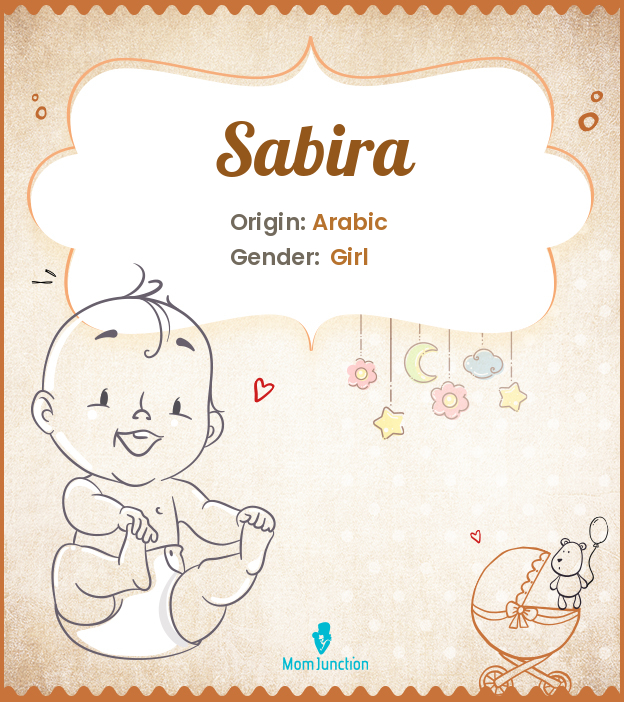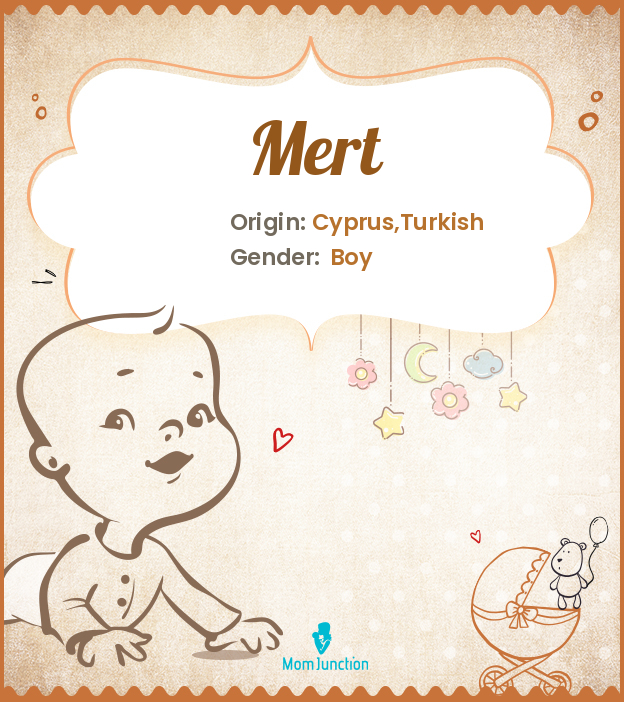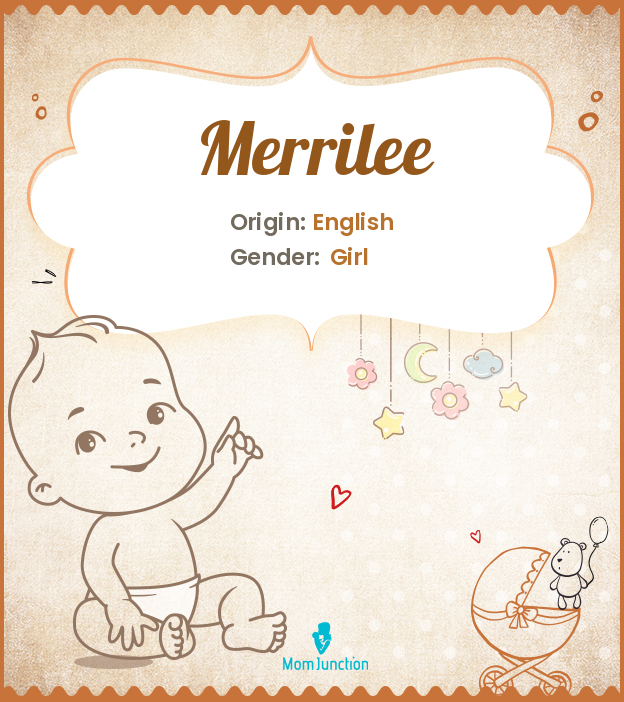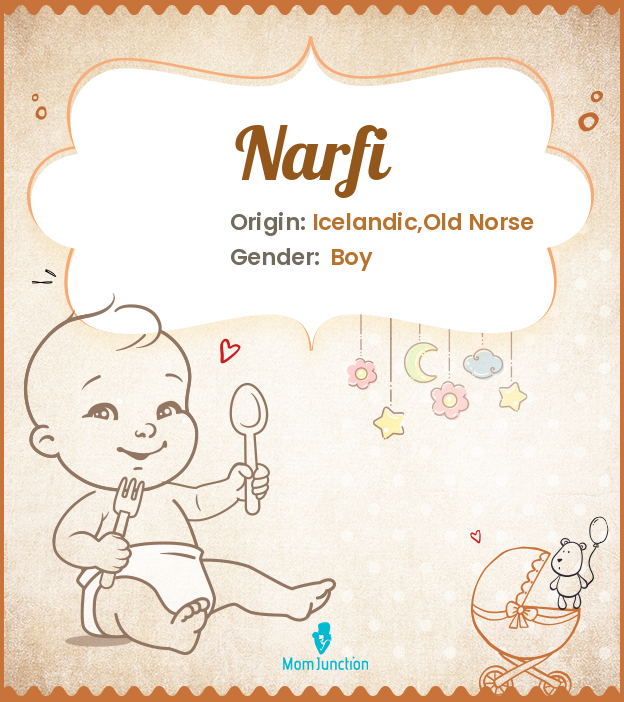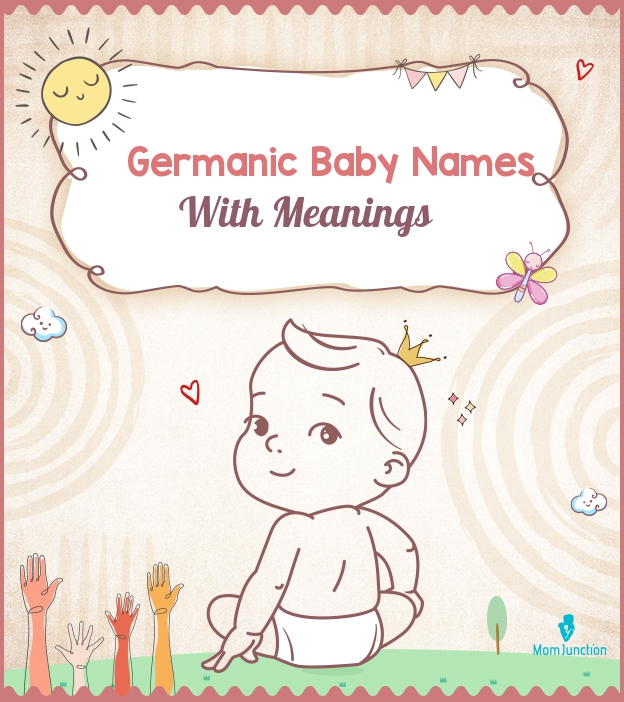
Illustration: MomJunction Design Team
Germany has a deep cultural history and is a source of many Germanic baby names. These names also derive from Northern European traditions and have a special appeal for modern parents looking for a timeless and charming name for their baby. Selecting an appropriate baby name is a huge responsibility, especially if you're a first-time parent. There are so many factors and options to consider that it may sometimes feel overwhelming. Should you go for something new or a tried and tested family name? Or a name based on heritage or characteristics? How about picking something entirely unconventional, like a Germanic baby name? Germanic names originated centuries ago among Northern European residents and Germanic tribes, such as Saxons, Angles, Vandals, Goths, Franks, and other Teutonic speakers, are still heard in specific regions of Germany and Europe.
Naming customs in Germany are quite similar to those in Anglo-Australian cultures. People usually receive three names: a first name, a middle name, and a last name (also called a family name). The last name is often passed down from the father's family, and the middle names are usually of the child's grandparents, but this practice has diminished over time. Today, parents can choose first and middle names, typically opting for names matching the child's gender. However, most Germanic first names are composed of two parts. This allowed people to create new names by combining parts from different names. Germanic people also used names from saints and Latin. Although last names weren't used earlier, they came into play in German-speaking Europe during the late middle ages. From the cultural heritage of Germania, Germanic mythology, and tribal groups of combatants, we bring you the names that gave rise to English, the most widely spoken language in the world. For complete details on the name, such as its origin, meaning, and history, just click the specific name link.
| Name | Gender | Meaning | |
|---|---|---|---|
| | | | Will; Protector |
Germanic baby names serve as an excellent link to Northern European heritage. Blending ancient roots, culture, and creativity, these names charm modern parents in search of a title with a classic essence and lasting meaning. Emerging from Germanic myths, tribal tales, and folklore, these names have impacted global languages. From simple choices like Aide to popular ones like Raymond, these names suit various preferences. Just as naming mirrors parental responsibility, these names embody heritage and future aspirations.
Infographic: Elegant Germanic Baby Names
German baby names have deep meanings that mirror the culture and history of Germany. These names strongly connect to the language's rich heritage and hold special meanings. These handpicked names represent qualities such as strength, nobility, and devotion. Explore and find the ideal name for your child through this infographic and embrace the beauty of German heritage.
Illustration: Momjunction Design Team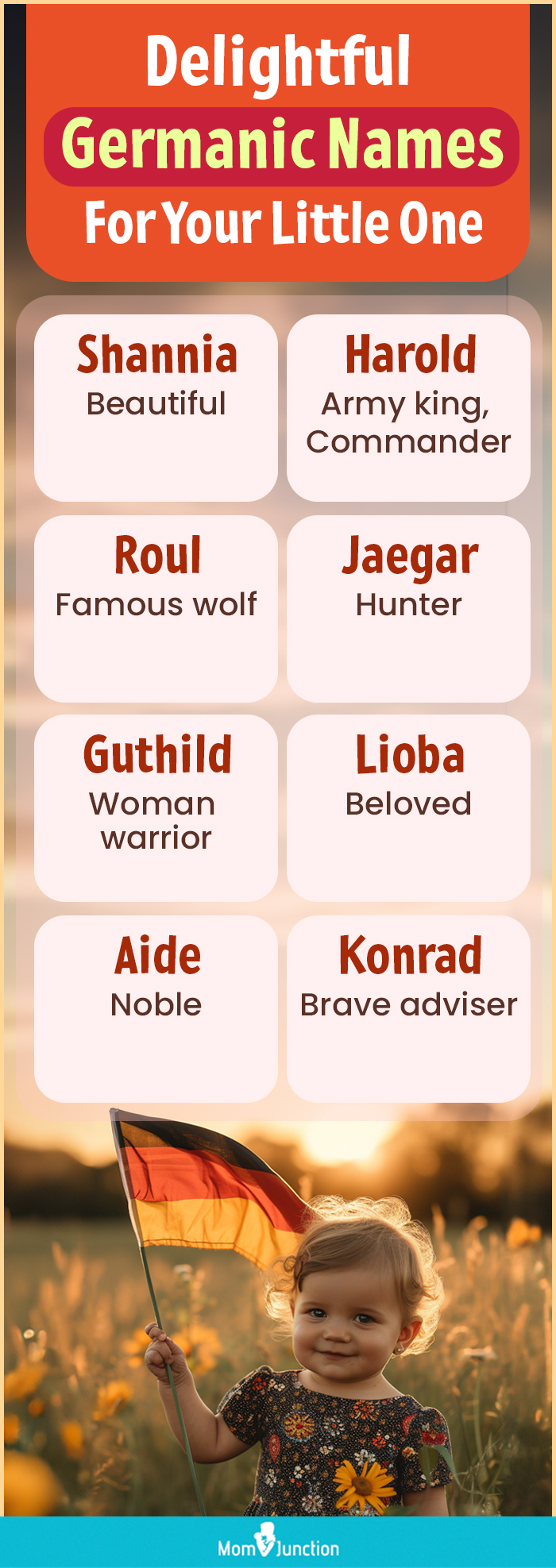
Frequently Asked Questions
1. What are some gender-neutral Germanic baby names?
Some gender-neutral Germanic baby names are Kai, with its persistent essence, embodies the spirit of a warrior; Alex, a timeless choice, symbolizes the noble role of defending humanity; and Riley, evoking the tranquility of a peaceful wood clearing, brings a sense of harmony and natural beauty.
2. What are some cultural or historical references in Germanic baby names?
Germanic baby names frequently encompass cultural or historical allusions. For instance, the masculine name Siegfried may be traced back to the German prince who, according to a legend, became invincible after bathing with the blood of the dragon he slayed (1). Similarly, names like Friedrich and Wilhelm pay tribute to esteemed historical figures, including German emperors and leaders. These names embody the rich cultural and historical heritage of the Germanic tradition.
3. What are some Germanic baby names with religious significance?
Hilda, derived from the Germanic goddess associated with warfare, reflects the theme of combat, and Engelbert, meaning bright angel, signifies a connection to celestial beings. Additionally, Gottfried, meaning God's peace, emphasizes the divine concept of harmony.
4. What Germanic name means lion?
Names such as Leopold, Leonhard, and Lionel encompass the essence of bravery and majesty linked to the lion. These names evoke the courageous and regal qualities that are often associated with the king of the animal kingdom.
5. How are Germanic baby names traditionally chosen, and what is their significance?
Germanic baby names are traditionally formed by combining a prefix and a suffix, creating meaningful dithematic names with rich symbolism. For example, King Æþelred's name combines 'æþele' (noble) and 'ræd' (counsel) to highlight his noble and wise qualities.
References
- The exciting legend of Siegfried the dragon slayer!
https://ukgermanconnection.org/kids/find-out-en/siegfried/#:~:text=Siegfried%20was%20a%20prince%20and










